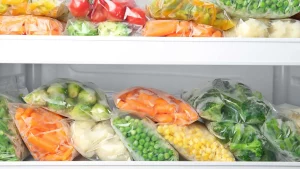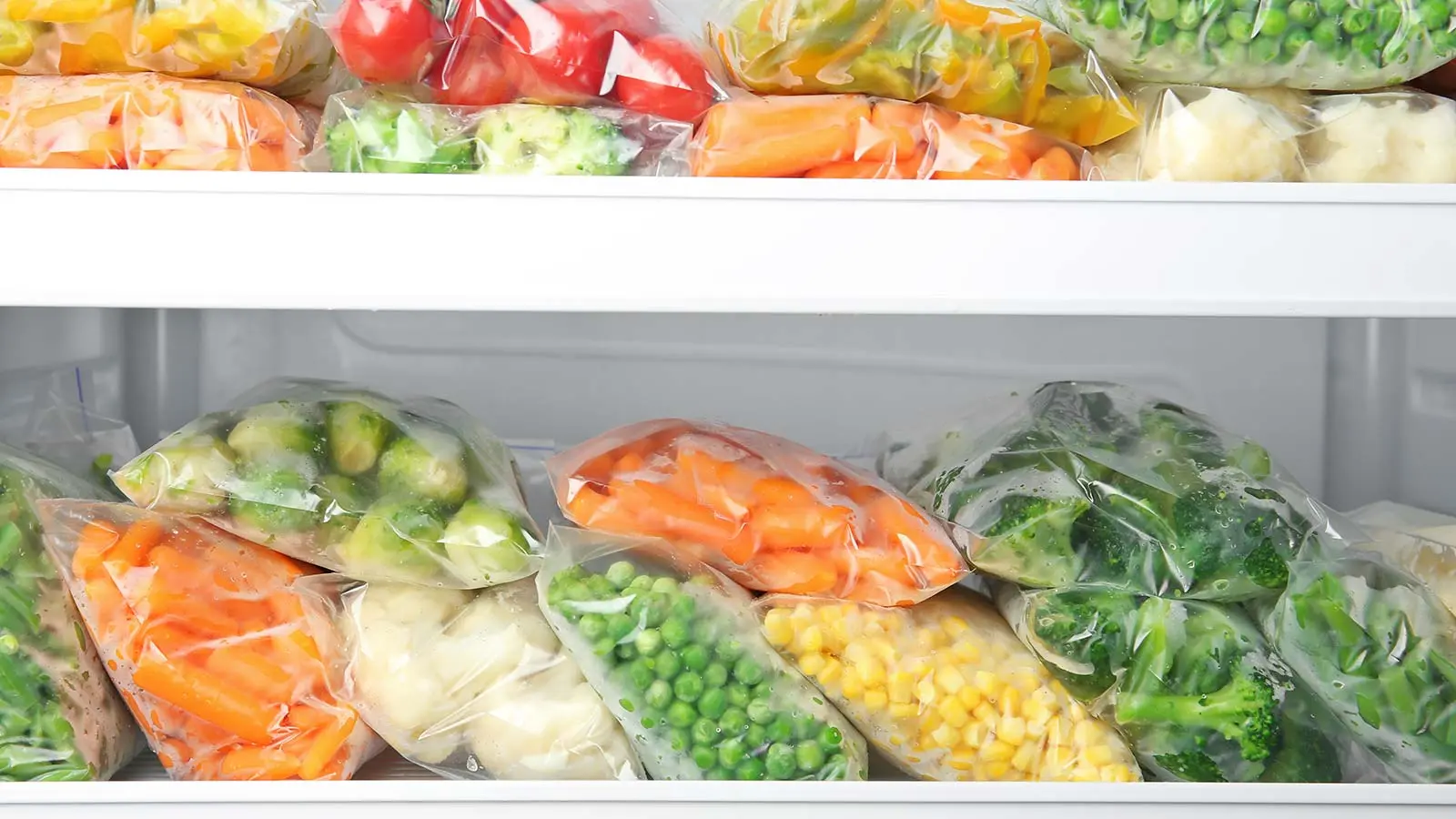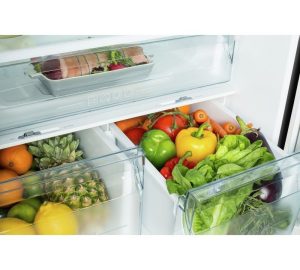Introduction
In the quest to reduce food waste and keep our produce fresh for longer, having the right storage containers and bags is paramount. When it comes to vegetables, choosing the appropriate storage solutions can make a significant difference in maintaining their quality. In this article, we’ll explore a variety of storage options designed to keep your vegetables fresh, from specialized produce drawers to reusable produce bags. Let’s dive into the world of vegetable storage and discover how to extend the shelf life of your greens and roots.
1. The Importance of Proper Vegetable Storage
Before we delve into the types of storage containers and bags available, it’s essential to understand why proper vegetable storage is crucial. Vegetables are living organisms even after harvest, and they continue to respire, using oxygen and releasing carbon dioxide. The primary goals of proper vegetable storage are to:
- Slow down respiration to prevent wilting and spoilage.
- Maintain optimal humidity levels to prevent moisture loss or excess dampness.
- Minimize exposure to ethylene gas from fruits, which can accelerate ripening.
https://img.ebyrcdn.net/873702-840025-800.jpg
2. Specialized Produce Drawers
One of the most common and effective ways to store vegetables in your refrigerator is by using the specialized produce drawers or crisper drawers. These drawers are designed to maintain the ideal conditions for vegetable storage.
Advantages of Using Produce Drawers:
- Temperature Control: Most refrigerators allow you to adjust the humidity levels in these drawers to match the specific requirements of different types of vegetables. This feature ensures the right balance of moisture for optimal freshness.
- Preservation of Texture: Produce drawers help prevent vegetables from wilting, thereby maintaining their crispness and texture for a more extended period.
- Odor Separation: These drawers are typically separate from other refrigerator compartments, reducing the chances of your vegetables absorbing strong odors from other foods.
- Efficient Organization: Using produce drawers helps keep your fridge organized, making it easier to access and use your vegetables.
3. Reusable Produce Bags
Reusable produce bags have gained popularity for their eco-friendly nature and effectiveness in keeping vegetables fresh. These bags are typically made from breathable and moisture-wicking materials.
Advantages of Reusable Produce Bags:
- Breathability: The breathable fabric of these bags allows for proper air circulation, preventing the buildup of excess moisture, which can lead to rot.
- Reduction in Plastic Waste: Using reusable bags is an environmentally friendly choice as it reduces the need for single-use plastic bags.
- Transparency: Many reusable bags are transparent, allowing you to easily identify the contents without opening the bag.
- Easy to Clean: These bags are usually machine washable, making them easy to clean and reuse.
4. Vacuum Seal Containers
Vacuum seal containers use airtight technology to remove the air from the container, creating a vacuum seal that preserves the freshness of vegetables.
Advantages of Vacuum Seal Containers:
- Extended Shelf Life: The removal of air prevents oxidation, reducing the degradation of vegetables, and extending their shelf life.
- Multi-Purpose: Vacuum seal containers can be used for a variety of foods, making them versatile additions to your kitchen.
- Stackable: These containers are often designed to be stackable, optimizing refrigerator or pantry space.
- Prevents Freezer Burn: Some vacuum seal containers are suitable for freezer use, helping preserve the quality of vegetables during long-term storage.
5. Glass Containers with Vent Lids
Glass containers with vented lids are designed to allow the right amount of airflow while still maintaining a sealed environment.
Advantages of Glass Containers with Vent Lids:
- No Plastic Contact: Glass containers eliminate the risk of chemicals from plastic affecting the flavor or safety of your vegetables.
- Vented Lids: The vented lids allow for controlled airflow, reducing moisture buildup and preventing condensation.
- Easy Identification: The transparency of glass containers makes it simple to identify the contents and monitor freshness.
- Microwave Safe: Glass containers are microwave-safe, allowing for easy reheating of your vegetables.
6. Root Storage Bins
Root storage bins are specially designed for storing root vegetables like potatoes, carrots, and onions.
Advantages of Root Storage Bins:
- Dark, Ventilated Storage: These bins are typically dark and well-ventilated, mimicking the conditions of a root cellar, which is ideal for root vegetable storage.
- Prevent Sprouting: Root storage bins help prevent sprouting by maintaining a consistent, cool, and dark environment.
- Separate Compartments: Some root bins have separate compartments, allowing you to store different types of root vegetables without mixing them.
7. Produce Storage Bags with Moisture Control
Produce storage bags with moisture control are designed to extend the freshness of vegetables by managing humidity levels.

Advantages of Produce Storage Bags with Moisture Control:
- Customizable Humidity: These bags often come with humidity control settings, allowing you to adjust the moisture level based on the type of vegetables you’re storing.
- Reusable: Many of these bags are reusable and can last for an extended period, making them a sustainable choice.
- Cost-Effective: They are often an economical choice, especially when compared to other storage containers.
8. Airtight Plastic Containers
Airtight plastic containers create a sealed environment, preventing the exchange of air and moisture.
Advantages of Airtight Plastic Containers:
- Versatility: These containers can be used for a wide range of foods, making them a versatile option.
- Tight Seal: Airtight containers create a tight seal, keeping out external odors and moisture.
- Variety of Sizes: You can find these containers in various sizes, making them suitable for different quantities of vegetables.
9. Eco-Friendly Beeswax Wraps
Beeswax wraps are an eco-friendly alternative for wrapping and preserving vegetables.
Advantages of Beeswax Wraps:
- Sustainable Choice: Beeswax wraps are reusable, making them an environmentally friendly option.
- Natural Material: These wraps are made from organic cotton infused with beeswax, tree resin, and jojoba oil, which are safe for food storage.
- Customizable: Beeswax wraps can be molded to fit the shape of your vegetables, providing a snug seal.
10. Silicone Food Storage Bags
Silicone food storage bags are a reusable and durable option for preserving vegetables.
Advantages of Silicone Food Storage Bags:
- Durability: These bags are known for their durability and long-lasting performance.
- Heat Resistant: Silicone bags are often heat resistant, making them suitable for sous-vide cooking and reheating.
- Easy to Clean: They are easy to clean and can be used for various foods.
Conclusion
When it comes to preserving the freshness of your vegetables, the right storage containers and bags can make all the difference. Whether you opt for specialized produce drawers, reusable produce bags, vacuum seal containers, or any of the other options discussed in this article, choosing the right solution for your needs can significantly reduce food waste and ensure that you enjoy crisp, flavorful vegetables with every meal. So, explore these options, pick what suits your lifestyle and needs best, and extend the shelf life of your favorite greens and roots while contributing to a more sustainable kitchen.





